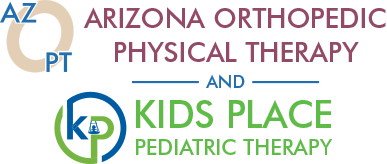Should You Be Worried About Gross Motor Delays in Your Child?
Your pediatrician tells you that your newborn is at risk for gross motor delays.
What are gross motor delays?
A gross motor delay refers to the large motor movements of the body and the ability to move through space. In practical terms, this is how your infant learns rolling, sitting, crawling, standing, and walking.
Why are gross motor delays important?
No doubt, someone will tell you “all babies develop at their own pace.” While this is true to some extent, more and more research is linking the milestones in gross motor development to development in other areas of language and cognitive development. In other words, a gross motor delay may result in delays in other areas of childhood development.
Here is a recent article that supports a link between development of independent sitting and the concept of object permanence:
Object Permanence and the Relationship to Sitting Development in Infants With Motor Delays
Medical providers know that many conditions and occurrences may cause delays in early development.
Some of the more common conditions that are known to cause or increase risk of delays include (but are not limited to):
- Prematurity (born before 37 weeks gestation)
- Torticollis
- Genetic disorders such as Trisomy 21 and others
- Hypotonia
- Trauma (this may include medically necessary surgery)
- Stroke
- Serious infection (this can include prenatal exposure to infection)
- Prenatal exposure to toxins (this can include both prescribed and non-prescribed drugs, or alcohol use)
If your baby has one or more of these factors, talk to your pediatrician about seeing a specialist for individualized screening and support.
How do you know if your baby is on track or falling behind with their gross motor skills?
There are some great references online. One of my favorites is Pathways Downloadable Milestone Checklists for Babies and Children. This checklist is easy to read and covers all areas of development. It is also available in multiple languages. And they have videos so you can see what your baby should be doing as well as general development ideas.
How far behind in gross motor skill does my baby have to be to ask for help?
Not much at all. In fact, the whole idea behind early intervention programs is to intervene early before problems become bigger and more complex or before delays in multiple areas result. Start by sharing your concerns with the pediatrician. They often are able to put you in contact with appropriate local resources or will give referrals. Often, if a risk factor is known at birth, the hospital may have you return for a newborn follow up that helps to monitor your baby’s development and give you activities for your baby. It is always important to keep those appointments. They use a number of screening tools to determine if your baby would benefit from extra help.
All states have an Early Intervention Program for infants up to age 3 at free or reduced cost. These programs also provide screening and support and do not require a physician referral. In Arizona, contact Arizona Early Intervention Program. Be aware that in Arizona you may be routinely seen by what is called a “developmental specialist” who usually has an educational background, and not a licensed medical provider through the AZEIP program. Your provider will share their credentials when asked.
Infant development assessment for gross motor delay is done by highly skilled and licensed physical and occupational therapists who have specialized in pediatric development. You may ask for a referral for these specialists from your pediatrician or a newborn follow up clinic. PTs & OTs will evaluate your baby and make a plan of care that is tailored to the specific needs of your baby.
If you have concerns, or were told your baby is at risk, seeking assistance sooner may prevent secondary delays and may be able to assist your infant in “catching up” sooner. With 4 locations in Arizona, Kids Place Pediatric Therapy is here to help!







